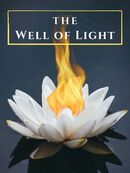May 2023 Newsletter
From Teaching to Experiential Inquiry
Information is not knowledge. The only source of knowledge is experience.
You need experience to gain wisdom.
Albert Einstein
Information is not knowledge. The only source of knowledge is experience.
You need experience to gain wisdom.
Albert Einstein
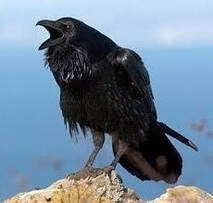
Dear Ones,
For many years I thought of myself as a teacher. I taught in schools, organizations, workshops, seminars, and online programs. Lately, I’ve been questioning this teaching role that I have taken on. Many things need to be taught, like how to drive a car, read and write, run a machine, or play an instrument. But, as Einstein said, “Information is not knowledge.” I’ve come to believe that teaching, while important in many areas, can detract from experiential learning, co-discovery, and going beyond the confines and limitations of our current beliefs and expectations.
For many years I thought of myself as a teacher. I taught in schools, organizations, workshops, seminars, and online programs. Lately, I’ve been questioning this teaching role that I have taken on. Many things need to be taught, like how to drive a car, read and write, run a machine, or play an instrument. But, as Einstein said, “Information is not knowledge.” I’ve come to believe that teaching, while important in many areas, can detract from experiential learning, co-discovery, and going beyond the confines and limitations of our current beliefs and expectations.
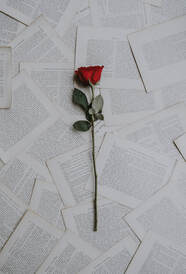
I’d like to share with you an insight and experience that brought me to this point. As many of you know, I have been writing a book that explores my personal traumas and how I have been able to make sense of them. I hired a very good editor to help me bring my writing to life. It felt that my writing was flat, old, and familiar but distant and lifeless. I was trained as a journalist, “just the facts”!
My editor took one of the trauma stories I had written and rewrote it, using my exact words but putting it in the first-person perspective. Then she had me read it. I couldn't do it because the tears and emotions that came up were too overwhelming. From this, I realized that my story was protecting me from feeling the unintegrated pain of what happened in the past, keeping it safely stored in the tension of my body. Trauma integration and healing are based on feeling the unexperienced physical and emotional pain from the past. Our stories can become protection from things that are no longer happening in our lives.
My editor took one of the trauma stories I had written and rewrote it, using my exact words but putting it in the first-person perspective. Then she had me read it. I couldn't do it because the tears and emotions that came up were too overwhelming. From this, I realized that my story was protecting me from feeling the unintegrated pain of what happened in the past, keeping it safely stored in the tension of my body. Trauma integration and healing are based on feeling the unexperienced physical and emotional pain from the past. Our stories can become protection from things that are no longer happening in our lives.
We learn our belief systems as very little children and then move through life, creating experiences to match our beliefs. Look back on your own life and notice how often you have gone through the same experience.
Louise Hay
Louise Hay

Our stories come from our experiences and the beliefs we created or inherited in order to understand, relieve, and make sense of the fear and pain of overwhelming situations. Beliefs shape our perceptions of the world, which leads to self-fulfilling prophecies and habitual repetition of our expectations. To experience post-traumatic learning, we must go to the body and the embodied emotions and feel them. This allows our body and nervous system to release the tension it carries. This is what we call integration, the resolution of incomplete experiences from the past.
We are all traumatized! We carry personal, familial, collective, and ancestral trauma in our genes and from the environment that shaped our worldview. Deconstructing our personal narrative is very important in our trauma integration work together. We all have stories that we have created to protect and make sense of difficult and overwhelming situations in our lives. But, we are not our stories. We also have a lot of information that we know but don't use or practice. In short, our unexamined beliefs and past experiences are often a detriment to the integration of our earlier trauma responses.
We are all traumatized! We carry personal, familial, collective, and ancestral trauma in our genes and from the environment that shaped our worldview. Deconstructing our personal narrative is very important in our trauma integration work together. We all have stories that we have created to protect and make sense of difficult and overwhelming situations in our lives. But, we are not our stories. We also have a lot of information that we know but don't use or practice. In short, our unexamined beliefs and past experiences are often a detriment to the integration of our earlier trauma responses.
The past doesn’t disappear. The past just needs to be digested.
Thomas Hübl
Thomas Hübl
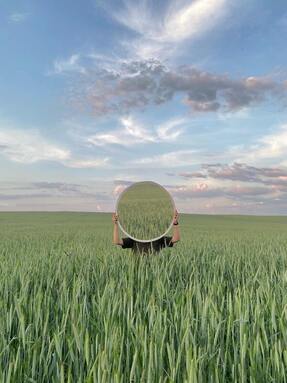
I recently felt myself being pulled back into a teacher and expert position, the role I played for the past five decades. But, teaching information that I have learned from sources other than direct experience and revelation and regurgitating it back to students is not going to help anyone integrate their fragmented and undigested experiences from the past. I don't believe it will contribute to the quality of our lives or enable us to meet the looming challenges of the future. When I open myself to the risk of stepping into the unknown and letting go of control, I open to the possibility of an evolutionary jump in what it means to be human. I move from being a seeker of information to a co-creator with life itself.
What if we joined together in this not knowing and began to inquire into what could be possible as equals, exploring that which lives beyond both the individual and collective known? Instead of imparting information and concepts that we have taken for granted, structural information that lives in concepts that make little or no difference to the quality of our lives, our resilience, or our creative and innovative expression, we could learn through mutuality. In other words, an intersubjective exploration based on meeting each other as an interconnected whole rather than separate objects floating through time and space.
What if we joined together in this not knowing and began to inquire into what could be possible as equals, exploring that which lives beyond both the individual and collective known? Instead of imparting information and concepts that we have taken for granted, structural information that lives in concepts that make little or no difference to the quality of our lives, our resilience, or our creative and innovative expression, we could learn through mutuality. In other words, an intersubjective exploration based on meeting each other as an interconnected whole rather than separate objects floating through time and space.
I was born not knowing and have had only a little time to change that here and there.
Richard P. Feynman
Richard P. Feynman
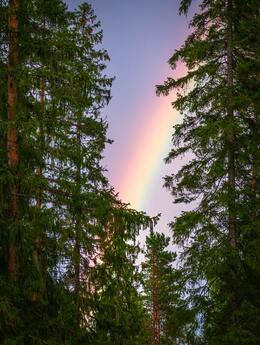
The teacher-learner model creates separation and a hierarchical sense of relatedness that can lock us into ways of seeing the world that diminish our ability to inquire, explore, and learn. Mutuality expands our capacity through curiosity, wonder, and awe. Real learning becomes embodied and connects us more deeply with the source of life itself. It allows us to see and feel the field of energy that is life! Instead of life happing to us, it begins to move through us, informing us of higher-level experiences in the larger field of reality.
Concepts live in the mind but have minimal impact on how we can break the habitual patterns that shape our lives and keep us feeling separate and isolated. More critical than information is the aliveness of spirit, the animating force that guides us, heals us, and informs us of sacred law, which is the deep knowing that comes from connecting intimately with the vast storehouse of intelligence that has been gifted to us by our ancestors over hundreds of millions of years of evolution.
Concepts live in the mind but have minimal impact on how we can break the habitual patterns that shape our lives and keep us feeling separate and isolated. More critical than information is the aliveness of spirit, the animating force that guides us, heals us, and informs us of sacred law, which is the deep knowing that comes from connecting intimately with the vast storehouse of intelligence that has been gifted to us by our ancestors over hundreds of millions of years of evolution.
Inquiry is fatal to certainty.
Will Durant
Will Durant
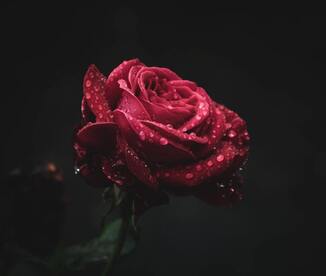
Inquiry is the art of letting go and letting be as we slow down and drop into stillness and not knowing. We loosely hold a question and allow it to permeate the larger field of awareness. This is mindfulness, the art of becoming centered on the moment from an inner lens, exploring the beliefs, experiences, and stories from the past while allowing the movement of life, the wonder of just being, and feeling our most authentic selves to emerge. Expanding into the felt sense of the field of awareness and cultivating the ability to look newly into the mystery of the unfolding evolution of life. Life itself is programmed to live, evolve, grow, and heal. We just have to get out of the way.
Can we just breathe and be, do we feel an experience of evolutionary growth, of becoming more like seeds growing into their most radiant flowering? Can we open to the mystery of belonging to something much more significant than our personality, body, thoughts, and beliefs? What would that look like through interactive experience and shared points of view of seeing, being seen, and sharing? How could it lead us to greater mutuality, connection, and intrabeing? Could this be the making of a new humanity?
Can we just breathe and be, do we feel an experience of evolutionary growth, of becoming more like seeds growing into their most radiant flowering? Can we open to the mystery of belonging to something much more significant than our personality, body, thoughts, and beliefs? What would that look like through interactive experience and shared points of view of seeing, being seen, and sharing? How could it lead us to greater mutuality, connection, and intrabeing? Could this be the making of a new humanity?
I hope you will join us this month in the inquiry of mutuality and not knowing. I feel that the future of life on this beautiful planet depends on it.
With love and gratitude,
Michael & the Well of Light Team
The cosmos is within us. We are made of star stuff. We are a way for the universe to know itself.
Carl Sagan
Carl Sagan
